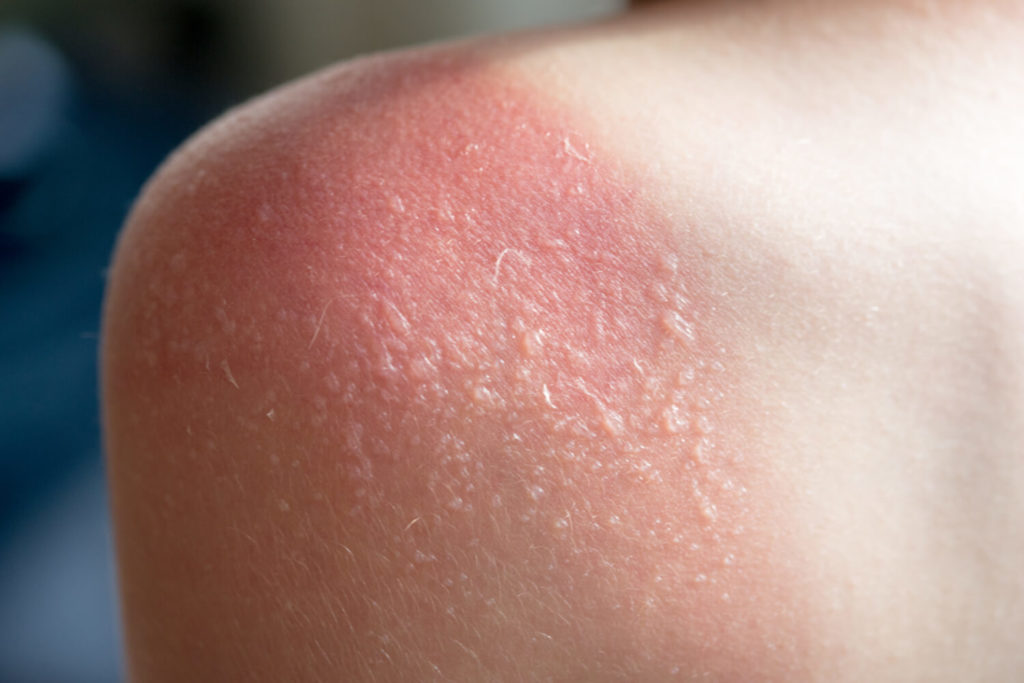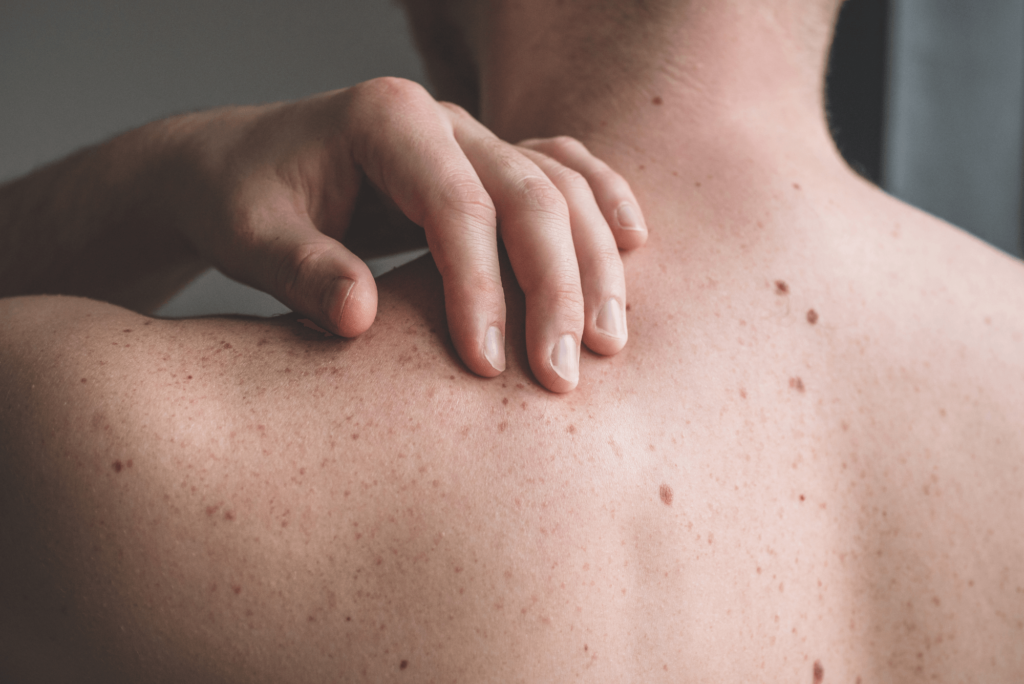What Causes a Sinus Infection and What are the Symptoms?
Sinus infections occur when fluid builds up in the sinus cavities of the face. When fluid accumulates and doesn’t drain, bacteria can grow. There are three sinus cavities in the face: frontal (between the brows), ethmoid (between the eyes and upper nose bridge) and maxillary (where the nasal wall and cheek meet, just above teeth). Normally, the sinus cavities contain little fluid. What fluid is present, easily drains out. However, there are certain infections and medical conditions that produce excess fluid and mucous. The excessive fluid may not drain as fast as it’s being produced and thickened mucous may not drain well at all.Cold viruses and respiratory allergies are the two most common conditions that produce fluid and mucous. At the same time, viruses and respiratory allergies trigger irritation and inflammation of the tissue lining the sinus cavities. Inflammation of the sinus cavities is called sinusitis.
This inflammation and swelling of the sinus tissue further limits fluid and mucous drainage.
Some people have chronic sinusitis from lifelong allergies, smoking, or from structural defects in the mid face which limit proper drainage.
What is the Difference Between Sinusitis and a Sinus Infection?
Sinusitis is sinus tissue inflammation from one or more environmental triggers. Sinusitis symptoms are mild and often improve with home treatment.
Sinus infection is a bacterial infection in the sinus cavities. Symptoms progressively worsen, last longer, and do not improve much with home care since only antibiotics treat bacterial infections.
Risk Factors
Sinusitis, chronic and acute. Inflammation of the sinus tissue can be triggered by a cold or allergies and may resolve on its own. Patients with chronic sinusitis need to have a management plan in place to combat their respiratory allergies and sinus inflammation. Symptoms include headache, facial pain, runny nose, and nasal congestion.
Acute sinusitis typically doesn’t require any treatment beyond over the counter nasal sprays, nasal saline rinses, and Acetaminophen or Ibuprofen for pain relief.
Previous cold. Cold viruses trigger mucous production that can lead to accumulation and bacterial formation. Bacterial formation takes several days to develop after cold symptoms begin.
Seasonal allergies. Allergens trigger inflammation of the nasal passages and sinus tissue as well as fluid production (i.e. watery eyes and runny nose), both of which increase risk of bacterial formation.
Smoking and secondhand smoke. Smoke is an irritant to the upper and lower respiratory system. Regular exposure causes tissue inflammation in the nose, sinuses, bronchus and lungs.
Structural problems within the sinuses. Structural defects, blockages or growths, inhibit drainage of fluid and mucous.
What are Symptoms of Sinus Infections?
Sinus infection symptoms differ from person to person, but generally speaking they last at least 4 days, progressively worsen in severity, and do not improve with home care.
• Symptoms may include:
• Runny nose
• Stuffy nose
• Facial pain or pressure around the eyes, nose, or teeth, especially when bending over
• Headache
• Mucus dripping down the throat (post-nasal drip)
• Sore throat
• Cough
• Bad breath
Are Sinus Infections Contagious?
No, sinus infections cannot be passed on to someone else.
How is a Sinus Infection Treated?
First, the healthcare provider assesses the patient’s symptoms, the severity of symptoms and how long the patient has had symptoms. There are significant differences between sinusitis and sinus infection which are easily assessed by a healthcare provider. Sinus infections are treated with prescription antibiotics to kill the bacterial overgrowth in the sinus cavities. Sometimes the healthcare provider will prescribe either a steroid spray or oral steroids to reduce inflammation in the sinus tissue. Steroids are not safe for all patients and should be used with caution.
Home Care for a Sinus Infection
Prevention is key. Begin allergy treatment at the first sign of seasonal allergies. Start with a daily nasal saline rinse, nasal spray, and allergy tablets if needed. Each of these is available over the counter.
Viral cold symptoms can be improved with saline rinsing and nose spray. Be sure to drink plenty of fluids to keep the mucous thin and easy to expel. Hot showers and humidifiers are helpful in thinning out and expelling nasal mucous as well.
Schedule an appointment and start feeling better soon.



